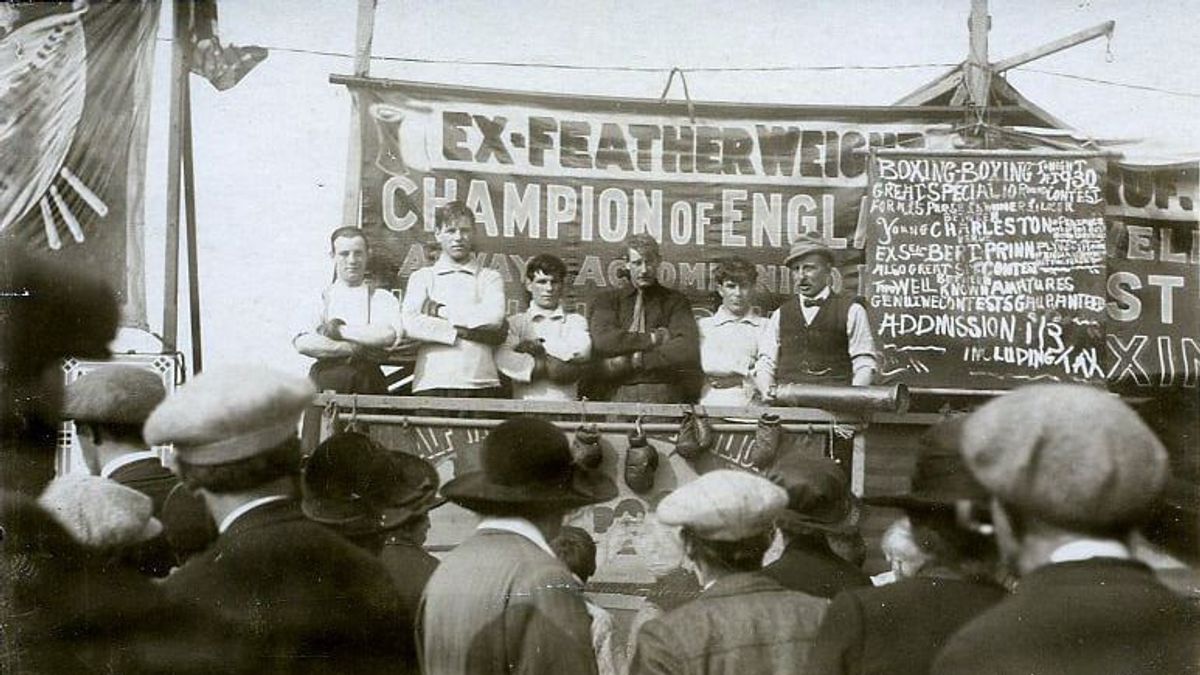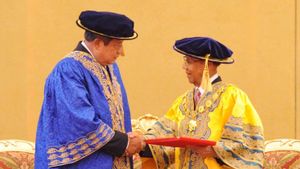JAKARTA - The fight for the WBC heavyweight title between Tyson Fury vs Dillian White which will be held at Wembley Stadium, London, England on Saturday 23 April 2022 or early Sunday in Indonesia, reminds the public that the history of professional boxing begins there. Queen Elisabeth's country started it all.
From the beginning boxing was a self-defense activity aimed at fighting, to a street fighting style competition activity, until finally the British made it more cultured. A series of rules were then pinned to make boxing more humane.

“There are clear hypotheses to explain the emergence of modern sport, related to the fact that England in the 18th century was the first industrial country in the world. In other words, there is a link between sporting activity and the industrial revolution,” wrote Eric Dunning, professor from Leicester University, England in the book Sport Matters: Sociological Studies of Sport, Violence, and Civilization.
Noble prankThe first professional boxing match recorded in history was a duel held by an English nobleman, Christopher Monck in 1681. Monck who had the title of 2nd Duke Albemarle idly pitted the butler and butcher in his castle for a paid duel. Of course, the fight was without standardized rules, aka at will who pays.
Monck's fad then spread to other nobles. Until finally, paid boxing fight performances were regularly held at the Royal Theater of London in 1698. Boxing matches at that time were known as bare knuckle boxing, or bare-handed boxing, aka not wearing boxing gloves.
Boxers who appear get paid, plus a share of the bet money. There is no rule on the number of rounds, no division of classes. Hitting is allowed, slamming and pinning are allowed. They fought until one of them surrendered, possibly dead. The rules are that simple.

Although the activity Monck pioneered was illegal, it quickly became popular. The activity continued, until it produced one of the most top fighters named James Figg. So often won and famous, Figg was the first boxer to hold the title of Champion of England in 1719. The title lasted for 15 years.
Figg's prowess passed down to one of his protégés, Jack Broughton. Figg's protégé is not only good at fighting, but also a visionary. Broughton innovated by introducing boxing gloves.
He also made a rule if a boxer fell and within 30 seconds did not get up, then he was declared defeated. Broughton introduced this simple new rule in 1743. Broughton's innovative thinking made him called the Father of English Boxing.
The Beginning of the RingBroughton's rules lasted for 95 years, until they were perfected by the London Prize Ring Rules in 1838. These rules required that a boxing match be held in a limited arena called a ring. That was the first time the ring was introduced. The new rules also introduce a 30-second rest session for boxers to drink.
Attacks through kicks, slams, elbows, strangulation, scratches, headers, and attacks to the genitals are prohibited. Boxers are only allowed to hit with a fist, with a head or body target. The London Prize Ring Rules were updated in 1853, to include 29 fighting rules.
Modern professional boxing today is based on the Marquees of Queensberry Rules, which is a refinement of the London Prize Ring Rules. Created by John Sholto Douglas who has the title of 9th Marqueess of Queensberry in 1867.

In addition to the standard ring size of 6-7 meters, this new rule introduces rounds and their duration. The number of rounds is not limited, but the duration of each round is limited to 3 minutes. Each round is given a pause of 1 minute for the boxer to recover.
The Marqueess of Queensberry Rules also clarifies the knockdown category, there are only referees other than two boxers in the ring, the use of thicker boxing gloves, boxers are not allowed to wear thick-soled shoes, and many more. A total of 12 items were added to the London Prize Ring Rules, which originally contained 29 rules.
The fight for the WBC heavyweight title between British boxers Tyson Fury vs Dillian White this weekend, also repeats the history of 29 years ago. On October 1, 1993, the WBC heavyweight champion from England, Frank Bruno, was challenged by fellow British boxer Lennox Lewis in a match in Cardiff, Wales. Bruno lost by TKO in the 7th round, but the championship belt still stands in England with Lewis.
The English, Chinese, Japanese, Arabic, and French versions are automatically generated by the AI. So there may still be inaccuracies in translating, please always see Indonesian as our main language. (system supported by DigitalSiber.id)










